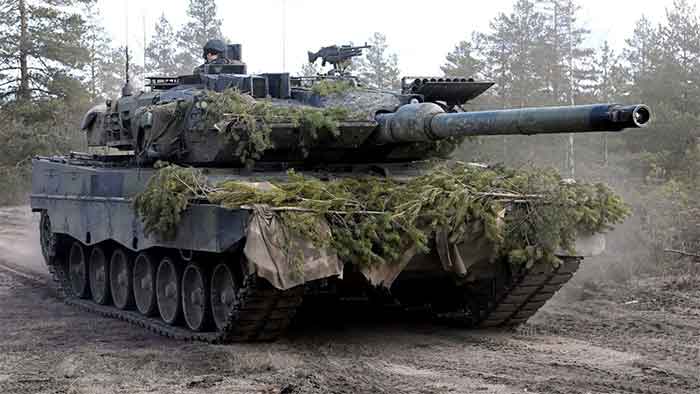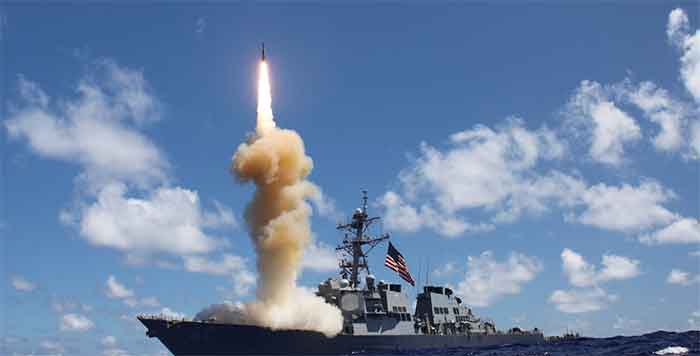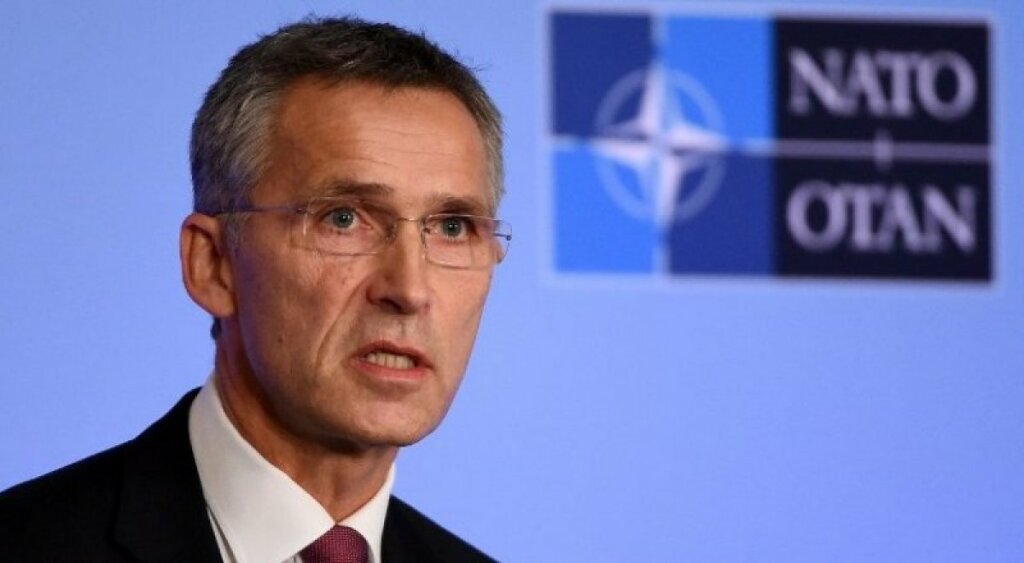
Regional alliances should, for the most part, remain regional. Areas of the globe can count on a number of such bodies and associations with varying degrees of heft: the Organization of American States; the Organisation of African Unity; and the Association of Southeast Asian Nations. Only one has decided to move beyond its natural, subscribed limits, citing security and a militant basis, for its actions.
On April 27, the UK Foreign Secretary Liz Truss, prime ministerial contender, made her claim that the North Atlantic Treaty Organization needed to be globalised. Her Mansion House speech at the Lord Mayor’s Easter Banquet was one of those unusually frank disclosures that abandons pretence revealing, in its place, a disturbing reality.
After making it clear that NATO’s “open door policy” was “sacrosanct”, Truss also saw security in global terms, another way of promoting a broader commitment to international mischief. She rejected “the false choice between Euro-Atlantic security and Indo-Pacific security. In the modern world we need both.” A “global NATO” was needed. “By that I don’t mean extending the membership to those from other regions. I mean that NATO must have a global outlook, ready to tackle global threats.”
The Truss vision is a simple one, marked by nations “free” and “assertive and in the ascendant. Where freedom and democracy are strengthened through a network of economic and security partnerships.” A “Network of Liberty” would be required to protect such a world, one that would essentially bypass the UN Security Council and institutions that “have been bent out of shape so far” in enabling rather than containing “aggression”.
This extraordinary, aggressive embrace of neoconservative bullishness, one that trashes international institutions rather than strengthening them, was on show again in Spain. At NATO’s summit, Truss reiterated her view that the alliance should take “a global outlook protecting Indo-Pacific as well as Euro-Atlantic security”.
The Truss position suggested less a remaking than a return to traditional, thuggish politics dressed up as objective, enduring rules. Free trade, that great oxymoron of governments, is seen as “fair”, which requires “playing by the rules.” The makers of those rules are never mentioned. But she finds room to be critical of powers “naïve about the geopolitical power of economics”, a remarkable suggestion coming from a nation responsible for the illegal export of opium to China in the nineteenth century and promoters of unequal treaties. “We are showing,” he boasted, “that economic access is no longer a given. It has to be earned.”
The Global NATO theme is not sparklingly novel, even if the Ukraine War has given impetus to its promotion and selling. The post-Cold War period left the alliance floundering. The great Satan – the Soviet Union – has ceased to exist, undercutting its raison d’être. New terrain, and theatres, were needed to flex muscle and show purpose.
The Kosovo intervention in 1999, evangelised as a human rights security operation against genocidal Serbian forces, put the world on notice where alliance members might be going. NATO was again involved in enforcing the no-fly zone over Libya as the country was ushered to imminent, post-Qaddafi collapse. When the International Security Force (ISAF) completed its ill-fated mission in Afghanistan in 2015, NATO was again on the scene.
In the organisation’s Strategic Concept document released at the end of June, the Euro-Atlantic dimension, certainly regarding the Ukraine conflict and Russia’s role, comes in for special mention. But room, and disapproval, is also made for China. “The People’s Republic of China’s (PRC) stated ambitions and coercive policies challenge our interests, security and values.”
A number of “political, economic and military tools” had been used to increase Beijing’s “global footprint and project power”, all done in a manner distinctly not transparent. The security of allies had been challenged by “malicious hybrid and cyber operations”, along with “confrontational rhetoric and disinformation”. Of deep concern was the deepening relationship between Moscow and Beijing, “and their mutually reinforcing attempts to undercut the rules-based international order” which ran “counter to our values and interests.”
The alliance’s recent self-inflation has led to curious developments. Australia’s Prime Minister Anthony Albanese has been pushing Canberra ever closer towards NATO, a process that has been ongoing for some years. At the alliance’s public forum in Madrid, Albanese used China’s “economic coercion” against Australia as a noisy platform while decrying Beijing’s encroachments into areas that had been the playground, and in some cases plaything, of Western powers. “Just as Russia seeks to recreate a Russian or Soviet empire, the Chinese government is seeking friends, whether it be […] through economic support to build up alliances to undermine what has historically been the Western alliance in places like the Indo-Pacific.”
At a press conference held at Madrid’s Torrejon Air Base, the Australian prime minister felt certain that “NATO members know that China is more forward leaning in our region.” Beijing had levelled sanctions not only against Canberra but had proven to “be more aggressive in its stance in the world”.
Australian pundits on the security circuit are warmed by the visit, seeing a chance to point NATO’s interest in the direction of China’s ambition in the Indo-Pacific. Just as Norwegian historian Geir Lundestad described Washington’s Cold War involvement in Western Europe as an empire by invitation, NATO, or some bit of it, is being envisaged as an invitee in regions far beyond its traditional scope. None of this will do much to encourage the prospects for stability while leaving every chance for further conflict.
Dr. Binoy Kampmark was a Commonwealth Scholar at Selwyn College, Cambridge. He currently lectures at RMIT University. Email: [email protected]














































